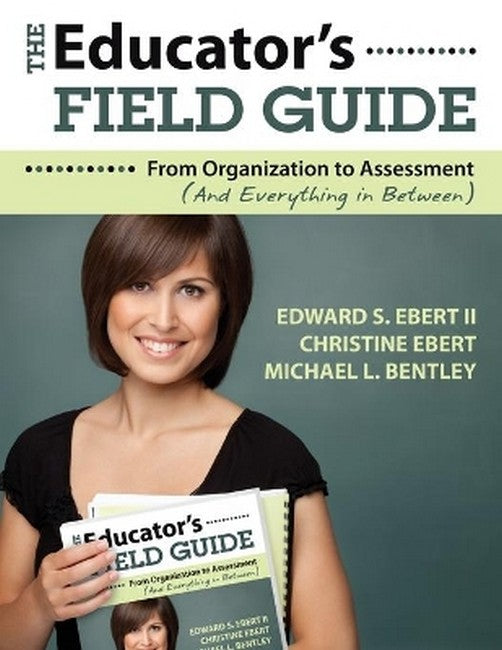Edward S. Ebert, II is Professor Emeritus of Education at Coker College in Hartsville, South Carolina and an award winning educator. With a degree in Psychological Foundations of Education, he has taught courses in educational psychology, elementary science methods, child development, classroom management, assessment, and creative problem solving. He as written a dozen books, including elementary science methods (Teaching Constructivist Science, K-8/Corwin Press), creative thinking and science teaching, introduction to education, classroom pragmatics: management and assessment (The Educator's Field Guide/Corwin Press), and an examination of public education in the American culture. Ebert has given numerous presentations nationally and internationally, and has taught science education and educational psychology for a semester at Shanghai International Studies University, Shanghai, P.R. China. He now resides in Wellfleet, MA, where he continues to publish educational materials and serves on a regional school board. Christine Ebert is Associate Provost, Dean of the Graduate School, and Professor of Science Education at the University of South Carolina. Her work in science education focuses on conceptual change and development in students' understanding of science principles. In addition she has taught courses in thinking and reasoning, and is extensively involved with collaboration between elementary schools and the university. Ebert serves regularly as a program evaluator for national federally funded science initiatives. She has co-authored three other books related to science education and conceptual development. Ebert has presented her work on science education and creative thinking at conferences across the country and around the world. Michael Bentley is an Associate Professor of Science Education at the University of Tennessee, Knoxville, where he teaches courses in environmental education and methods of teaching K-8 science. He has written science books for young readers as well as curriculum materials and numerous professional articles and chapters in books. He has also been involved with the creation of several innovative schools and has been an officer on two school boards. Bentley's interests include teacher education, the public understanding of science, curriculum studies and international education, and the history, philosophy, and sociology of science as applied to science education.
Request Academic Copy
Please copy the ISBN for submitting review copy form
Description
List of Figures and Tables Preface Acknowledgments About the Authors Unit I Instructional Organization Unit I Outline Unit I Concept Map Unit I Pep Talk First: Long-Range Planning Second: Short-Range Planning Now: Classroom Organization Tomorrow: Instructional Presentation Finally: Communication With "Outsiders" Conclusion Unit I Appendix Unit II Classroom Management Unit II Outline Unit II Concept Map Unit II Pep Talk First: Keys to Successful Classroom Management Second: Establishing a Management-Based Learning Environment Now: Compiling Your Plan: A Template for Classroom Management Tomorrow: Implementing the Plan and Responding to Student Behavior Finally: Assessing Your Classroom Management Plan Unit II Appendix Unit III Instruction Unit III Outline Unit III Concept Map Unit III Pep Talk First: The Curriculum Second: The Student Now: Conceptualizing Your Role Tomorrow: Putting it All Together Finally: This Is a People Profession Unit IV Assessment Unit IV Outline Unit IV Concept Map Unit IV Pep Talk First: The Basics of Assessment Second: Making Assessment a Part of Instruction Now: Writing Tests Tomorrow: Analyzing the Results of Your Assessment Finally: Assessment and the High-Stakes Environment Glossary References Index

